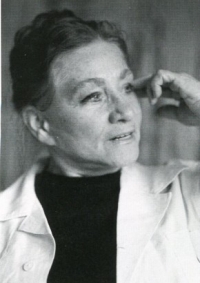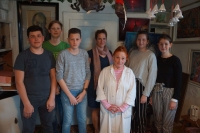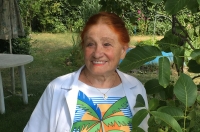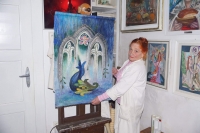Work, work, work and do what one likes to do

Download image
Dagmar Renertová, née Kopřivová was born on December 24, 1930 in Prague. In 1935, the family moved to Olomouc, where her father Arnošt Kopřiva led the local garrison of the Czechoslovak army. Both her parents were imprisoned during the Protectorate, and Dagmar and her younger brother Milan were hiding with relatives in Wallachia. Father Arnošt Kopřiva took part in the liberation of the Creussen camp and subsequently, together with the American army, in the western part of Czechoslovakia. He received the Medal of Freedom from the General Patton. Mother Eliška Kopřivova, née Spáčilová helped families persecuted by the Nazis and transferred refugees across the border to Poland, for which she was imprisoned in Terezín and subsequently in Ravensbrück. She survived the death march and typhus infection. After the war, Dagmar studied at the School of Applied Arts in Prague and worked in the textile studio of Professor Antonín Kybal. She has worked all her life in the field of art and advertising; for 25 years she was the leading artist of the Fashion House in Prague. She spent most of her adult life in Řevnice, and for several years also in Hranice na Moravě.





